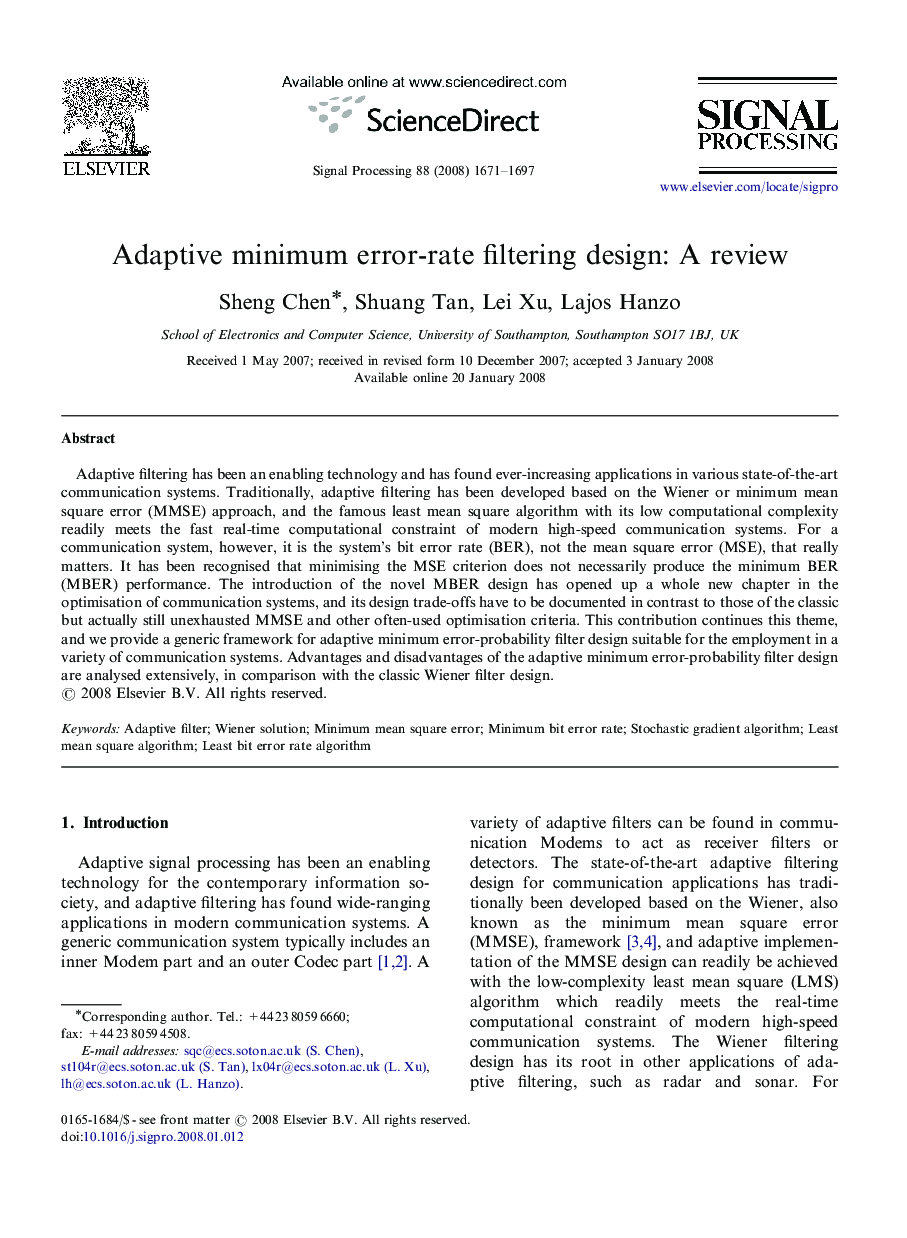| کد مقاله | کد نشریه | سال انتشار | مقاله انگلیسی | نسخه تمام متن |
|---|---|---|---|---|
| 567041 | 876040 | 2008 | 27 صفحه PDF | دانلود رایگان |

Adaptive filtering has been an enabling technology and has found ever-increasing applications in various state-of-the-art communication systems. Traditionally, adaptive filtering has been developed based on the Wiener or minimum mean square error (MMSE) approach, and the famous least mean square algorithm with its low computational complexity readily meets the fast real-time computational constraint of modern high-speed communication systems. For a communication system, however, it is the system's bit error rate (BER), not the mean square error (MSE), that really matters. It has been recognised that minimising the MSE criterion does not necessarily produce the minimum BER (MBER) performance. The introduction of the novel MBER design has opened up a whole new chapter in the optimisation of communication systems, and its design trade-offs have to be documented in contrast to those of the classic but actually still unexhausted MMSE and other often-used optimisation criteria. This contribution continues this theme, and we provide a generic framework for adaptive minimum error-probability filter design suitable for the employment in a variety of communication systems. Advantages and disadvantages of the adaptive minimum error-probability filter design are analysed extensively, in comparison with the classic Wiener filter design.
Journal: Signal Processing - Volume 88, Issue 7, July 2008, Pages 1671–1697